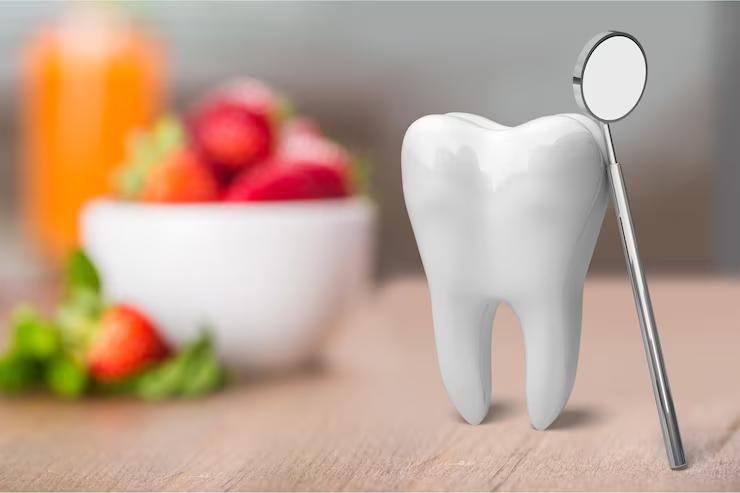Introduction
A bright, healthy smile is much more than a confidence booster — it’s a reflection of your entire body’s health and wellness. Oral health is closely linked to heart health, digestion, and even mental well-being. That’s why Family dental care is so important; it goes beyond appearances and supports the overall health of every family member.
Teaching children good oral hygiene early on helps them develop lifelong habits that prevent cavities, gum disease, and more serious health issues down the road. When kids see parents prioritizing brushing, flossing, and regular dental visits, they are more likely to follow suit. Family dental care offers a unique opportunity to lead by example and create strong routines together as a family.
From toddlers getting their very first tooth to grandparents preserving their natural teeth or maintaining dentures, Family dental care covers every life stage. It ensures that each family member receives tailored treatments and guidance that meet their specific needs. By choosing a family-focused approach, you make dental care more convenient, accessible, and comforting for everyone. Investing in Family dental care isn’t just about maintaining beautiful smiles — it’s a powerful step toward lifelong health and happiness for the whole family.
In this comprehensive guide, we’ll explore what family dental care is, why it’s so important, common dental issues for different age groups, and practical ways to maintain excellent oral health at home. We’ll also share the top 8 tips for family dental care to keep every smile in your household healthy and bright.
What Is Family Dental Care?

Family dental care is a holistic approach to oral health that addresses the needs of individuals at every life stage. Unlike general dental care, which may focus on individual patients, family dental care provides continuous support, education, and treatment for the entire family under one roof.
Family dentists are trained to handle a variety of needs — from fluoride treatments and sealants for children to crowns, bridges, and dentures for seniors. This makes it easier and more convenient for families to coordinate appointments and build a trusting relationship with their dental team.
Why Is Family Dental Care Important?
1. Preventive Care Saves Money and Pain
Regular dental check-ups and professional cleanings are the foundation of strong Family dental care. These routine visits allow dentists to spot potential issues early before they become more serious and expensive to treat. From small cavities to early signs of gum disease, early detection makes a big difference in protecting your family’s smiles and overall health.
Preventive care doesn’t stop at the dentist’s office. Family dental care also involves fluoride treatments and dental sealants that help strengthen enamel and protect against decay, especially in children who are still learning proper brushing techniques. These extra steps can prevent future problems and save your family from discomfort and unexpected costs down the road.
By emphasizing prevention, Family dental care encourages a proactive rather than reactive approach to oral health. Professional cleanings remove plaque and tartar buildup that daily brushing might miss, reducing the risk of cavities and gum disease. Prioritizing these preventive measures creates a strong foundation for lifelong oral health, teaches valuable habits to children, and keeps everyone in the family smiling confidently. Investing in prevention today means healthier, happier visits to the dentist tomorrow — an essential goal of comprehensive Family dental care.
2. Promotes Lifelong Healthy Habits
One of the most impactful parts of Family dental care is setting an example for children by visiting the dentist together. When kids see their parents and older siblings taking oral health seriously, they naturally understand that dental care is an important part of life. This shared experience reduces fear and anxiety around dental visits, making it a normal and even positive routine.
In Family dental care, these joint appointments provide a chance to reinforce healthy habits. Children learn firsthand about brushing, flossing, and the value of professional cleanings. Watching their family members prioritize oral health inspires them to follow good hygiene practices at home, from daily brushing to eating tooth-friendly foods. This modeling shapes habits that will protect their teeth for years to come.
Beyond health benefits, visiting the dentist together strengthens family bonds. It transforms dental visits from something to dread into a supportive, educational experience. Investing in Family dental care means nurturing a lifelong commitment to oral health while building confidence and trust. By establishing these habits early, families lay the groundwork for strong, healthy smiles and encourage a mindset that values self-care and prevention — both essential parts of a happy, healthy life.
3. Builds a Strong Patient-Dentist Relationship

A major benefit of Family dental care is the trust and comfort that come from consistently visiting the same dental office. When every family member, from toddlers to grandparents, sees the same provider, they build a strong, supportive relationship over time. This familiarity helps reduce dental anxiety, which is common among both children and adults. Knowing what to expect and recognizing friendly faces can make appointments feel less intimidating and more like a routine part of self-care.
Having one trusted dentist for all ages means families receive personalized, continuous care. The dentist becomes familiar with the family’s medical histories, dental habits, and individual needs, allowing for more accurate treatment and tailored advice. This continuity is especially important for tracking growth and changes in children’s teeth and ensuring aging adults receive appropriate care as their dental needs evolve.
Family dental care also fosters a sense of community and security. When families trust their dentist, they are more likely to stay proactive about regular check-ups and preventive care. Over time, this strong relationship encourages open communication and helps everyone feel comfortable asking questions and addressing concerns. Investing in consistent Family dental care not only strengthens smiles but also builds lasting confidence in oral health care.
4. Addresses Unique Needs of Each Family Member
A major advantage of Family dental care is that it addresses the unique needs of each family member, regardless of age. Every life stage brings its own dental challenges and goals. For example, young children need guidance on brushing and cavity prevention as their first teeth come in. Adolescents may require orthodontic evaluations and braces to correct misalignments and improve confidence in their smiles.
As people enter adulthood, their focus may shift to maintaining healthy gums, addressing wisdom teeth issues, or dealing with the effects of lifestyle habits on oral health. Meanwhile, older adults often need to manage gum disease (periodontal treatment), tooth wear, or consider solutions like crowns, bridges, or dentures. Family dental care makes it easier to meet these changing needs in one convenient setting, providing comprehensive support for everyone.
When families choose a single dental provider, they benefit from consistent monitoring, early intervention, and customized care plans tailored to each member. This coordinated approach ensures that no matter the stage of life, everyone gets the attention and preventive care they need. By choosing Family dental care, you simplify oral health management and help every family member enjoy a healthy, confident smile for years to come.
Common Dental Issues by Age
Toddlers and Young Children
- Tooth decay and cavities: Due to sugary snacks and inconsistent brushing.
- Thumb sucking and pacifier use: Can affect tooth alignment.
- First dental visits: Essential to detect any early issues and establish comfort.
Pre-Teens and Teenagers
- Orthodontic needs: Braces or aligners to correct bite and alignment.
- Sports injuries: Mouthguards are important to protect teeth during activities.
- Wisdom teeth development: Monitoring growth and potential impaction.
Adults
- Gum disease: More common with age and lifestyle factors.
- Tooth sensitivity: May develop due to enamel wear.
- Cosmetic concerns: Whitening, veneers, and smile makeovers.
Seniors
- Tooth loss and dentures: Replacement options to maintain function and appearance.
- Dry mouth: Often caused by medications, increasing cavity risk.
- Oral cancer screenings: More important as we age.
How to Choose the Right Family Dentist
- Comprehensive services: Look for an office that offers preventive, restorative, and cosmetic treatments for all ages.
- Experience with children: A friendly, gentle approach is key to making young patients feel safe.
- Convenient location and hours: Family life is busy — choose a practice with flexible scheduling.
- Emergency care: Find out if they offer same-day or after-hours appointments for urgent issues.
Daily Family Dental Care Routine
- Brush twice a day: Use fluoride toothpaste and brush for at least two minutes.
- Floss daily: Even kids should learn to floss as soon as two teeth touch.
- Limit sugary snacks and drinks: Encourage healthy alternatives like fruits and vegetables.
- Drink plenty of water: Water helps rinse away food particles and keeps saliva levels healthy.
- Replace toothbrushes every 3-4 months: Worn bristles are less effective.
The Role of Diet in Family Dental Health
Nutrition plays a powerful role in Family dental care, as what you eat directly impacts your teeth and gums. A balanced diet filled with essential nutrients like calcium, vitamin D, phosphorus, and vitamin C helps strengthen tooth enamel, support healthy gums, and maintain strong bones. Including these vitamins and minerals ensures that both children and adults build a foundation for lifelong oral health and fewer dental problems in the future.
Encouraging kids to enjoy healthy snacks is a fun and effective part of Family dental care. Instead of sugary treats that stick to teeth and cause cavities, try offering apple slices with peanut butter, cheese cubes, or yogurt with fresh berries. These options are not only delicious but also promote saliva production, which helps wash away food particles and bacteria. Establishing these habits early helps children develop a positive relationship with food and their dental health.
Limiting sugary drinks, sticky candies, and acidic foods is another key practice in Family dental care. These items can erode enamel, create cavities, and contribute to gum issues. Teaching your family to make smart food choices strengthens their smiles and overall health, setting everyone up for a lifetime of bright, strong teeth.
Managing Dental Anxiety in the Family

Dental fear is common, especially among children. Strategies include:
- Starting dental visits early.
- Reading storybooks about the dentist.
- Using positive language before visits.
- Bringing comfort items (like a favorite stuffed animal).
Parents can model calmness and speak positively about their own experiences.
Top 8 Tips for Family Dental Care
1. Start Early and Be Consistent
Introducing brushing and regular dental visits early is a vital part of Family dental care. As soon as a baby’s first tooth appears, parents should start gently brushing it with a soft, baby-sized toothbrush and a smear of fluoride toothpaste. Early introduction helps children become comfortable with the sensation of brushing and sets a foundation for a lifetime of healthy habits. Starting young makes dental care feel like a normal daily routine rather than a chore.
By making Family dental care fun and consistent, parents can prevent fear and anxiety. Singing songs, using colorful toothbrushes, or letting children choose their toothpaste flavor can make brushing more enjoyable. When dental visits are introduced at an early age, kids learn that going to the dentist is a positive experience rather than something to be afraid of. This builds trust and helps reduce the chances of dental phobias as they grow older.
Consistency is key to successful Family dental care. Regular check-ups allow dentists to monitor growth, catch issues early, and provide guidance specific to each stage of development. Starting these habits early gives children the confidence to take care of their own oral health as they grow, creating strong smiles that last a lifetime.
2. Make Oral Hygiene Fun
Making brushing fun is a game changer when it comes to Family dental care. Using colorful toothbrushes featuring their favorite characters or bright patterns can instantly make brushing more appealing to children. Flavored toothpaste, like bubblegum or fruity options, can turn an ordinary routine into something they actually look forward to. By making these small but exciting changes, parents can encourage kids to build positive feelings around oral hygiene from a young age.
Interactive tools, such as brushing apps that play songs or show animated timers, can also boost motivation. These apps guide children on how long to brush and often include fun animations or rewards to keep them engaged. Creating a lively and enjoyable atmosphere during brushing time helps them understand the importance of taking care of their teeth without feeling pressured. Involving technology can also make Family dental care a shared and fun family activity rather than a solo task.
Reward systems, like sticker charts or small prizes, add an extra layer of excitement to Family dental care routines. When children see tangible rewards for their effort, they’re more likely to stay consistent. Celebrating these small victories reinforces good habits and makes dental care an enjoyable part of everyday family life.
3. Schedule Regular Family Dental Check-Ups
Regular dental visits are the foundation of strong Family dental care. By scheduling twice-yearly check-ups, you give your dentist the opportunity to detect cavities, gum disease, or alignment issues early—before they turn into bigger and more costly problems. These visits often include thorough cleanings that remove plaque and tartar buildup, which daily brushing and flossing might miss. Professional exams help ensure every family member’s oral health is on track, supporting a lifetime of strong teeth and healthy smiles.
When possible, try to schedule appointments for the entire family on the same day. This approach makes it easier to coordinate everyone’s schedules and minimizes the number of trips to the dental office. It also turns the experience into a family activity, reinforcing the idea that Family dental care is a shared responsibility and a normal part of life. Children who see their parents attending check-ups are more likely to adopt these habits themselves without fear or resistance.
Beyond just preventing dental issues, these visits provide a chance to ask your dentist questions about at-home care, diet, or specific concerns. Whether you’re discussing braces for a teenager or gum health for an older adult, routine visits are an essential investment in your family’s long-term dental health. Prioritizing Family dental care now sets the foundation for a lifetime of confident smiles.
4. Protect Teeth During Sports
A crucial part of Family dental care is protecting your children’s teeth during sports and physical activities. Investing in mouthguards — whether custom-made by a dentist or purchased at a store — is a smart and proactive step. These simple devices act as a barrier, absorbing impacts and preventing chipped, broken, or knocked-out teeth during contact sports like football, basketball, hockey, or even activities like skateboarding.
Parents often focus on helmets and pads for safety but overlook dental protection. A mouthguard can save your family from painful injuries and unexpected dental emergencies that may require expensive treatments or even tooth replacements. When you make a mouthguard part of your child’s sports gear, you teach them the importance of taking care of their teeth as much as they protect the rest of their body. This reinforces the importance of Family dental care beyond just brushing and flossing.
Additionally, involving your kids in choosing their mouthguards — whether by picking colors or designs — can make them more likely to wear them consistently. Talk to your family dentist about the best type of mouthguard for your child’s needs. Including this protective habit as part of your family’s overall dental routine ensures your children’s smiles stay healthy and strong, both on and off the field.
5. Lead by Example
Children mimic their parents’ behaviors. Show them you value oral health by brushing and flossing with them.
6. Focus on a Tooth-Friendly Diet

A key part of Family dental care is maintaining a healthy, balanced diet that supports strong teeth and gums. One of the most important steps is reducing processed sugars. Sugary snacks and drinks like candy, soda, and even fruit juices can lead to tooth decay and cavities, especially in children. Instead, encourage drinking water throughout the day. Water not only keeps everyone hydrated but also helps wash away food particles and bacteria that can harm teeth.
Including calcium-rich foods in your family’s meals is another essential strategy for Family dental care. Dairy products such as milk, cheese, and yogurt strengthen tooth enamel and promote healthy bones. Leafy greens, almonds, and fortified plant-based milks are great options for families who avoid dairy. By introducing these nutrient-dense foods, you build a foundation for lifelong oral health while also teaching children the connection between diet and strong teeth.
Family cooking sessions can make healthy eating more enjoyable and educational. Involving kids in meal preparation encourages them to try new foods and understand the importance of nutrition in Family dental care. These shared moments create lasting habits and memories, making oral health feel like a natural and fun part of daily life rather than a chore
7. Address Dental Issues Promptly
Don’t ignore toothaches or sensitivity — prompt treatment prevents small issues from becoming bigger problems.
8. Keep Up with Education
Family dental care is not just about brushing and flossing — it’s also about staying informed and up-to-date on the latest oral health recommendations. Dental science and techniques are constantly evolving, which means the way we care for our teeth should grow too. Reading reputable articles and trusted dental resources can help you keep up with new findings, such as the best brushing techniques, the most effective toothpaste ingredients, and the latest recommendations on fluoride or sealants.
Another important part of Family dental care is asking your dentist questions during visits. Whether you’re concerned about your child’s teeth alignment, unsure about cavity prevention methods, or interested in learning more about diet and dental health, your dentist is a valuable resource. Open communication builds trust and ensures that every family member’s unique needs are addressed properly. This personalized guidance helps prevent issues before they become major problems.
Finally, pass this knowledge on to your children as they grow. Teaching them the most current Family dental care tips empowers them to make smart choices and understand why oral hygiene matters. When kids see dental care as an evolving, lifelong learning process, they’re more likely to develop habits that keep their smiles healthy and bright for years to come.
Benefits of Family Dental Care
- Convenience: One office for the whole family saves time and simplifies scheduling.
- Better overall health: Good oral health reduces the risk of heart disease, diabetes, and infections.
- Cost savings: Preventive care is always more affordable than treating major dental problems.
- Lifelong healthy habits: Teaching kids to care for their teeth builds a foundation for lifelong health.
Frequently Asked Questions
When should a child have their first dental visit?
A strong foundation for Family dental care starts early, even earlier than many parents might think. The American Dental Association recommends that children visit a dentist by their first birthday or within six months after their first tooth erupts. This early introduction is crucial because it helps detect any potential issues before they become serious problems. Starting dental visits young also helps parents learn the best ways to clean their child’s teeth, manage teething discomfort, and understand proper nutrition for oral health.
Regular visits from an early age also help create a positive association with the dentist, reducing fear and anxiety later in life. When dental visits are introduced as a normal part of a child’s health routine, kids learn that caring for their teeth is just as important as going to the doctor for check-ups. Family dental care becomes a shared responsibility, teaching children that their smile deserves attention and care from the start.
Early visits set the stage for lifelong healthy habits and make it easier to monitor the growth and development of your child’s teeth and jaw. With proper Family dental care, children learn that prevention and consistent care can keep their smiles healthy and beautiful as they grow
How can I help my child stop thumb-sucking?
Positive reinforcement and gentle reminders work better than punishment. Talk to your dentist if it continues past age 4.
Is fluoride safe for my family?
Yes — fluoride is an essential part of Family dental care because it strengthens tooth enamel and helps prevent cavities in both children and adults. Using fluoride toothpaste is one of the most effective ways to protect teeth against decay. For children, it’s important to use the right amount based on their age. A smear or rice-sized amount is recommended for kids under three, while a pea-sized amount is suitable for those aged three to six. This careful approach helps avoid swallowing too much fluoride while still gaining the protective benefits.
Incorporating fluoride into your Family dental care routine not only protects your children’s developing teeth but also supports strong, healthy smiles for adults. Fluoride can even help reverse early stages of tooth decay by remineralizing weakened enamel. It’s a simple yet powerful step that can significantly reduce the risk of costly dental treatments in the future.
Parents play a crucial role in teaching children to use fluoride toothpaste properly and supervising brushing time to ensure they spit instead of swallow. By making fluoride use a family habit, you reinforce the importance of prevention in Family dental care, helping everyone maintain healthy, cavity-free smiles for years to come.
How do I prepare for a family dental appointment?
When preparing for a Family dental care visit, it’s important to stay organized and thoughtful about each family member’s needs. Start by making a list of any recent changes in your family’s health, such as new allergies, diet changes, or habits that could affect dental health. Note any concerns you might have, like tooth sensitivity, gum issues, or changes in your child’s teeth alignment. Also, be sure to include a list of current medications for each family member, as some medications can impact oral health and treatment options.
For young children, visiting the dentist can be intimidating. To make Family dental care visits smoother and more positive, pack their favorite toys, books, or small activities to help keep them calm and entertained. Familiar items bring comfort and create a more welcoming experience, reducing fear and anxiety. This not only supports their emotional well-being but also helps the dental team work more efficiently.
By planning ahead and including everyone’s unique needs, Family dental care becomes more personalized and effective. This thoughtful preparation shows your family the importance of dental health and builds lifelong habits of proactive care. Together, you’ll create a supportive environment that keeps smiles healthy and happy for years to come.
The Emotional Side of Family Dental Care
Family dental care goes far beyond just maintaining clean teeth — it deeply impacts each family member’s confidence, self-esteem, and overall quality of life. A healthy smile allows children and adults alike to feel proud, interact confidently with others, and express themselves freely. When your family prioritizes oral health together, it creates a sense of shared commitment and care that extends to all areas of life.
Celebrating small victories is a key part of Family dental care. Whether it’s a cavity-free check-up, completing a round of orthodontic treatment, or simply sticking to a daily brushing schedule, these milestones deserve recognition. By turning these moments into celebrations, you help reinforce positive habits and make dental care something to look forward to instead of fear. This approach can encourage even the most reluctant family members to stay on track.
Creating a supportive, positive environment is essential for successful Family dental care. Encourage open conversations about dental fears, share tips, and support one another through treatments or challenges. By working together and uplifting each other, your family can transform dental care into a source of pride and shared achievement, strengthening both smiles and bonds along the way.
Conclusion
Family dental care is about more than just avoiding cavities — it’s about empowering every family member to take pride in their health. By building strong habits early, providing consistent care, and supporting one another, you can create a legacy of healthy smiles that lasts a lifetime.
Start today with small, manageable steps to improve Family dental care. One simple but powerful idea is to brush your teeth together as a family. This shared routine helps children learn proper techniques while creating a sense of togetherness. When kids see parents and siblings taking dental care seriously, they’re more likely to build lifelong healthy habits themselves.
Another great tip for improving Family dental care is to turn dental appointments into a family event. Scheduling check-ups on the same day makes visits more convenient and less stressful, while also reinforcing the idea that dental health is a family priority. This shared experience can help reduce dental anxiety, especially in young children, and strengthen bonds as you all support each other’s health goals.
Finally, focus on incorporating fun, healthy meals into your family routine to support strong teeth and gums. Choose crunchy fruits and vegetables, calcium-rich dairy, and avoid sugary snacks and drinks. Over time, these changes can make a huge difference in overall oral health. With patience and consistency, Family dental care can become a joyful part of daily life. Soon, your whole family will enjoy the confidence and happiness that comes with having bright, healthy smiles
Final Encouragement
our family’s dental health journey is a unique and lifelong adventure that deserves to be embraced with love and patience. Every family member, from young children to grandparents, has different needs, but when you prioritize Family dental care, you build a foundation for strong, healthy smiles at every age. Teaching kids to care for their teeth early on helps create lifelong habits and shows them that dental health is an important part of overall well-being.
Patience is key when it comes to Family dental care. It’s normal for children to resist brushing or feel nervous about dental visits. By staying consistent and supportive, you can turn these challenges into opportunities for growth and bonding. Celebrate small milestones, like a cavity-free check-up or successful flossing, to motivate and encourage every family member.
Commitment to Family dental care is about making small, daily choices that add up over time. Whether it’s choosing water over soda, making brushing a fun family activity, or scheduling regular dental appointments, these actions protect your family’s smiles and boost their confidence. Remember, every small effort today builds a future filled with healthy, happy smiles and lasting dental health for your entire family.





